Azerbaijan and Iran find common cause
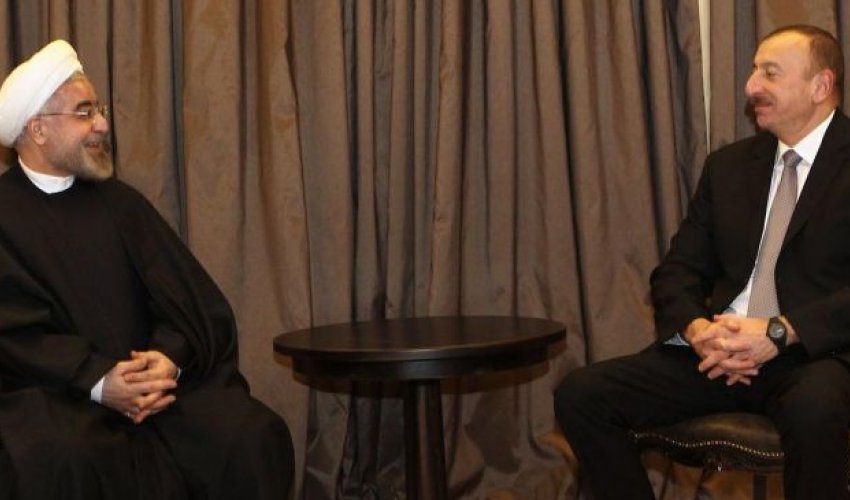
by Thomas Liles
In mid-November, Iranian President Hassan Rouhani made a highly touted visit to Baku, where he signed several memoranda of understanding with Azerbaijani President Ilham Aliev and agreed on the need to develop economic, cultural, and political ties. The top-level exchange suggests significant improvement in a relationship that has been plagued by mutual suspicion and hostility throughout most of Azerbaijan’s post-Soviet statehood.
Among more prominent strategic interests, the warming trend appears linked to Baku’s attempts to placate potentially volatile Shia groups and to cooperate with Iran in dealing with Sunnis radicalized by the conflicts in Iraq and Syria.
Tensions between the two countries flared as recently as August, when Iran indirectly accused Azerbaijan of launching an Israeli reconnaissance drone over its territory. Last year, there was an unexplained shooting incident on the border. Most seriously, in 2012, Azerbaijani police foiled an alleged Iranian terror plot on the Israeli Embassy in Baku and Tehran hurled accusations over Azerbaijani military collusion with Israel.
Moreover, Azerbaijan prides itself on its secular values, and fears of Iranian attempts to export political Shi’ism have served as a reliable source of anti-Iran sentiment among secular-minded government officials and citizens.
Yet the broader geopolitical currents behind Rouhani’s visit – including Iran’s gradual rapprochement with the West – and the traditional narratives of tension overshadow a less visible shift in Azerbaijan-Iran relations over the past few years. The two sides have consistently improved relations in the religious sphere, as state-affiliated faith structures in majority-Shia Azerbaijan have developed increasingly warm ties with their Iranian counterparts since 2012.
Azerbaijan’s State Committee for Work with Religious Organizations (SCWRO), which is responsible for registering and monitoring religious communities, has been particularly active in courting Tehran’s favor. The committee announced a planned joint agreement with Iran’s Islamic Culture and Relations Organization (ICRO) in December 2012, and the following September then-SCWRO Chairman Elshad Iskandarov visited Qom and Tehran. He met with Mohammad Bagher Khorramshad, head of the ICRO, and Iranian Culture Minister Ali Jannati, offering to work on student exchanges and other joint faith activities. Iskandarov was replaced as chairman in July, but the current SCWRO leadership maintains positive relations with Iranian officials.
According to Altay Goyushov, a professor of Islamic history at Baku State University, SCWRO initiatives vis-à-vis Iran are largely tied to concerns over Azerbaijan’s own Shia community, many parts of which have had a contentious relationship with the government since the 1990s.
"Iskandarov tried to achieve the loyalty of Shias to the Azerbaijani state,” Goyushov said. "He understood that it would be impossible to achieve this if there was resistance from the Iranian mujtahids [religious scholars], thus the SCWRO tried to appease the mujtahids and thereby succeeded in coopting domestic Shia communities to a great extent.”
Among the SCWRO’s greatest successes in this regard was the official registration last year of the formerly independent Mashadi Dadash mosque, which hosts Baku’s most vibrant Shia community and draws between 800 and 3,000 worshippers for Friday prayers.
The community’s influential imam, Haji Shahin Hasanli, had tense relations with the SCWRO prior to Iskandarov’s chairmanship and was briefly detained during a crackdown on prominent Shia figures in early 2011. The relationship improved dramatically under Iskandarov. In addition to Mashadi Dadash’s official registration, Hasanli began taking part in SCWRO public relations initiatives aimed at promoting a national ethos of religious tolerance.
The Caucasus Muslim Board (CMB), which appoints Muslim clergy throughout Azerbaijan and manages Islamic educational institutions, has been similarly active in strengthening ties with Iran. In a November 2012 meeting with Iranian Ambassador Mohsen Pak Ayeen, Sheikh ul-Islam Allahshukur Pashazade, the CMB’s chairman, emphasized the importance of the two countries’ relations and invited Iranian public and religious figures to participate in the board’s religious conferences in Baku. In the past two years, Pashazade has held six additional high-level meetings with Iranian officials and made two working visits to Qom, Iran’s spiritual capital.
The substance and timing of the SCWRO and CMB initiatives are also linked to ongoing conflict in Syria and Iraq, which has become more sectarian, with increasing participation by radical Azerbaijani Salafis since 2012.
"The Salafi factor is an important catalyst in [the Azerbaijan-Iran] rapprochement, as both countries perceive this as a real threat to their stability,” said Arastun Orujlu, director of the Baku-based East-West Research Center. "Baku never thought of Salafism as a truly serious threat until Azerbaijani Salafis began fighting in Syria and Iraq in large numbers.”
Combating Sunni extremism, and possible blowback from wider regional conflicts, have figured on the agenda of religious cooperation. During Iskandarov’s September 2013 meeting with Iranian Culture Minister Jannati, the two sides discussed measures to prevent the spread of radical Salafism. Iranian media subsequently reported that the discussions also touched on the situation in Syria.
Mubariz Gurbanli, a former high-ranking lawmaker and Iskandarov’s successor as SCWRO chairman, appears to be continuing the policy, ratcheting up rhetoric against Azerbaijan’s Salafis while maintaining positive ties to Iranian officials.
In addition to decrying Salafism in public statements and press releases, CMB leader Pashazade has raised the issue in exchanges with his Iranian counterparts, most recently criticizing the Islamic State at a conference in Qom dedicated to combating extremism and "Takfiri movements” that accuse fellow Muslims of apostasy.
Whether Baku’s religious outreach to Tehran will extend beyond current strategic calculations is debatable, especially considering other aspects of the touchy relationship. The policy does not appear to portend a complete liberation of Azerbaijan’s Shia community. Critical Shia activists of the Khomeinist variety, such as Taleh Bagirov, Abgul Suleymanov, and Movsum Samedov, remain behind bars on politically motivated charges.
Nevertheless, improvements in official religious relations since 2012 indicate that Baku has at least come to see Tehran as a necessary partner in achieving some strategic domestic and geopolitical goals in the religious sphere. With Azerbaijan needing to pacify a domestic Shia constituency and hedge against a resilient and rabidly anti-Shia Islamic State, religious cooperation with Iran is likely continue for the foreseeable future, even if volatility remains the dominant paradigm on the official diplomatic level.
NOTE: Thomas Liles, a former Fulbright fellow in Azerbaijan, is pursuing a master’s degree in Russian, Eastern European, and Central Asian studies at Harvard University.
(Transitions Online)
























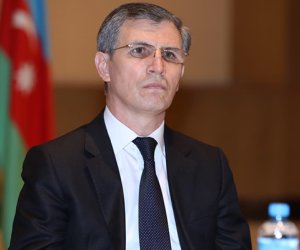
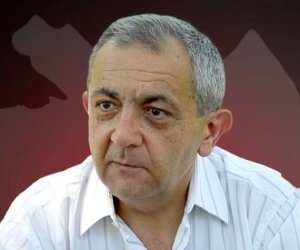
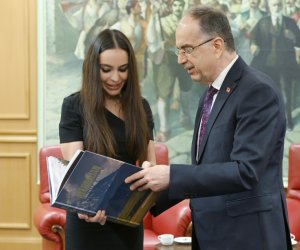
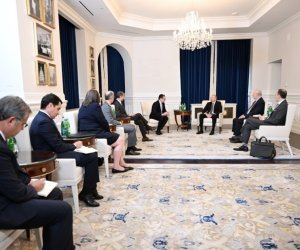
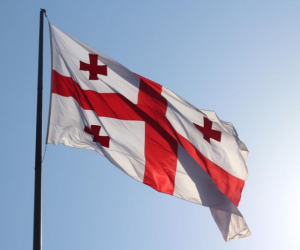
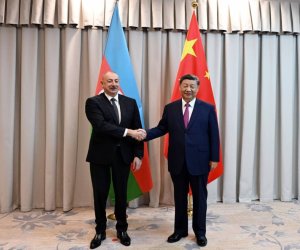
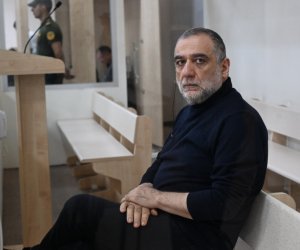

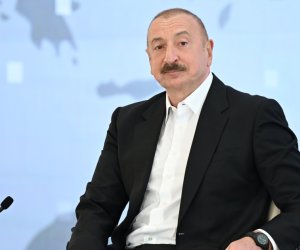



 Photo
Photo 



 Video
Video 

